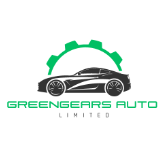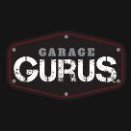-
Welcome to Auto Parts Forum
Whether you are a veteran automotive parts guru or just someone looking for some quick auto parts advice, register today and start a new topic in our forum. Registration is free and you can even sign up with social network platforms such as Facebook, X, and LinkedIn.
Understanding ECM Issues and Choosing the Right Replacement
-
Similar Content
-
- 0 replies
- 1,283 views
-
Unlock Peak Vehicle Performance with Premium Auto Parts: Clifford Auto Parts Delivers Quality You Can Trust
- clifford auto parts
- carpart
- (and 3 more)
- 0 replies
- 499 views
-
- 0 replies
- 324 views
-
- 2 replies
- 882 views
-
- 0 replies
- 1,001 views
-
-
Similar Topics
-
By Dorman Products
Programming instructions | Dorman replacement keyless entry transmitter fobs for GM vehicles
-
By Clifford Auto Parts
Your car’s control module is one of the most important components in ensuring a smooth and efficient ride. Whether it’s an Engine Control Module (ECM), Powertrain Control Module (PCM), or Transmission Control Module (TCM), these electronic units play a crucial role in regulating engine performance, fuel efficiency, and transmission behavior.
At Clifford Auto Parts, we specialize in providing OEM control modules that guarantee compatibility, reliability, and long-term performance. But how do you know when it’s time to replace your control module? Let’s break it down!
✅ What Is a Control Module and What Does It Do?
A control module is an onboard computer that processes data from various sensors in your car and makes real-time adjustments to optimize performance. Some of the most common control modules include:
✔️ Engine Control Module (ECM) – Controls ignition timing, fuel injection, and emissions.
✔️ Powertrain Control Module (PCM) – Manages both engine and transmission functions.
✔️ Transmission Control Module (TCM) – Regulates gear shifting and transmission efficiency.
✔️ Body Control Module (BCM) – Handles electrical functions such as lighting, locks, and windows.
When these modules start to fail, your car may experience serious performance issues that could lead to costly repairs.
✅ Signs of a Failing Control Module
If your control module is going bad, your car will usually give you warning signs. Here are the top indicators that it may be time for a replacement:
🚨 Check Engine Light Stays On
If your Check Engine Light won’t turn off even after repairs, it could be due to a failing ECM or PCM.
🚨 Poor Fuel Efficiency
A malfunctioning control module may send incorrect signals, leading to excess fuel consumption and reduced mileage.
🚨 Difficulty Starting the Car
If your car struggles to start, the ECM might not be properly managing the fuel and ignition system.
🚨 Transmission Issues
A faulty PCM or TCM can cause hard shifting, gear slipping, or delayed acceleration.
🚨 Engine Stalling or Misfiring
A failing ECM can result in irregular combustion cycles, leading to stalling, misfires, and sluggish performance.
🚨 Electrical Malfunctions
The BCM controls many electronic functions, so if your power windows, locks, or headlights start acting up, it may be time for a replacement.
✅ What Causes Control Modules to Fail?
Several factors can lead to a control module failure, including:
🔥 Water or Moisture Damage – Exposure to moisture can corrode internal circuits.
⚡ Voltage Surges – A faulty alternator or battery can overload the control module.
🔧 Worn-Out Components – Over time, electronic components degrade, leading to failure.
💥 Physical Damage – Accidents or engine overheating can cause module failure.
If you’re experiencing any of these issues, replacing your control module can prevent further damage and restore your vehicle’s performance.
✅ Why Choose an OEM Control Module Over Aftermarket?
When replacing a control module, you have two options: OEM (Original Equipment Manufacturer) or Aftermarket. Here’s why OEM control modules are the best choice:
✔️ Guaranteed Compatibility – Designed specifically for your vehicle’s make and model.
✔️ Pre-Programmed for Plug-and-Play Use – No extra programming needed.
✔️ Factory-Tested for Reliability – OEM parts undergo rigorous quality checks.
✔️ Maintains Vehicle Warranty – Aftermarket parts may void manufacturer warranties.
✔️ Longer Lifespan – OEM modules are built to last, unlike some aftermarket options.
✅ Why Buy OEM Control Modules from Clifford Auto Parts?
At Clifford Auto Parts, we provide high-quality OEM control modules at unbeatable prices. Here’s why thousands of vehicle owners trust us:
✔️ OEM-Grade Control Modules for Ford, Dodge, Jeep, and More
✔️ Pre-Programmed & Ready to Install – No Dealership Required
✔️ Lifetime Warranty on ECM, PCM, and TCM Replacements
✔️ Fast & Free Nationwide Shipping – Receive Your Part in 3 Business Days
✔️ Expert Customer Support to Help You Find the Right Module
🚗 Looking for a replacement control module? Shop now at link hidden, please login to view and get back on the road with confidence!
✅ How to Install Your New Control Module
1️⃣ Disconnect the Battery – Prevents electrical damage.
2️⃣ Locate the Module – Found under the hood, near the firewall, or in the cabin.
3️⃣ Remove the Old Module – Carefully disconnect all wiring and mounting bolts.
4️⃣ Install the New OEM Module – Secure it and reconnect wiring.
5️⃣ Test Your Vehicle – Start your car and check for warning lights or error codes.
📌 Need help finding the right part? Call (516) 494-7838 for expert assistance!
✅ Final Thoughts: Get the Right Control Module for Your Car
A failing control module can cause engine trouble, transmission problems, and electrical failures—but replacing it with an OEM module ensures long-term reliability, compatibility, and optimal performance.
🔧 Don’t let a bad control module ruin your driving experience! Get a high-quality replacement today at link hidden, please login to view 🔧
📞 Have questions? Call (516) 494-7838 for expert support.
🚀 Fast Shipping – Lifetime Warranty – 100% Customer Satisfaction! 🚀
-
By Counterman
On Feb. 18, 2025, the automakers released a legislative proposal related to automotive right to repair; the views cited in this proposal represent a small fraction of the repair market and are not representative of the broader automotive aftermarket, MEMA said. The industry does appreciate automakers’ acknowledgment of the need for federal legislation to protect consumer choice in vehicle repair and looks forward to congressional consideration of the REPAIR Act.
Auto Care Association President and CEO Bill Hanvey and MEMA Aftermarket Suppliers President Paul McCarthy released the following statement:
“We’re pleased to see trade groups representing automakers finally admit what we’ve long known: congressional action is needed to ensure independent shops and aftermarket parts manufacturers can continue to offer Americans quality, affordable choices for vehicle repairs.
“That said, this latest proposal appears to be a tactic to delay and defeat pro-consumer right to repair legislation at every level. The bipartisan Right to Equitable and Professional Auto Industry Repair Act (REPAIR Act) is a straightforward approach to ensure safe and secure access to vehicle repair and maintenance data.
“The REPAIR Act, led by Congressman Neal Dunn, is the solution. Protection of consumer and fleet-owner choice ensured access to critical repair data, an established federal enforcement mechanism, and the prevention of repair monopolies is accomplished through the REPAIR Act. Without it, the aftermarket will lose the ability to not only innovate but continue to offer consumers options to keep their vehicles on the road.
The post
link hidden, please login to view appeared first on link hidden, please login to view.
link hidden, please login to view -
-
By Counterman
Judge Denise Casper dismissed the entirety of the Alliance for Automotive Innovation’s suit challenging the 2020 Massachusetts Data Access Law. The automakers’ bid to block the Massachusetts
link hidden, please login to viewlaw has failed and the law remains in effect. The judge’s written decision is still under seal but should be made available to the public soon. “Today’s ruling is a significant victory for the people of Massachusetts—and all Americans,” said Bill Hanvey, president and CEO, Auto Care Association. “This decision by Judge Casper ensures that car owners have the right to access their vehicle’s repair and diagnostic data, empowering them to make informed choices about maintenance and repairs. It levels the playing field, allowing independent repair shops to compete fairly, which in turn drives down costs for consumers. As car owners, we all deserve the freedom to control and manage the data that’s generated by our own vehicles. This ruling is a crucial step toward fostering greater transparency, affordability, and innovation in the automotive industry for the benefit of all Americans.”
The
link hidden, please login to view said it will update its members with additional information as it becomes available. The post
link hidden, please login to view appeared first on link hidden, please login to view.
link hidden, please login to view
-







Recommended Posts
Join the conversation
You can post now and register later. If you have an account, sign in now to post with your account.
Note: Your post will require moderator approval before it will be visible.